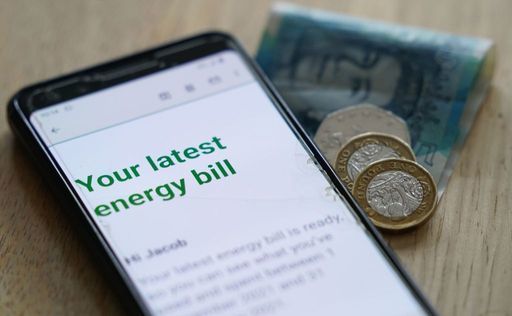It is hard to remember that this time last year soon-to-be prime minister Liz Truss was on the verge of compromising her free market principles by dreaming up a scheme for the state to make an open-ended commitment to subsidise the energy bills of every household in Britain. At the time, there were dire predictions that households would be swamped by energy costs, forecasts for which were rising by the day.
This morning, Ofgem has announced that the Energy Price Cap is to fall again, to a level at which the average household will see energy bills of £1,923 a year, down from £2,074 a year at present. The move won’t take prices below the level they were before the invasion of Ukraine in February 2022, but it will take them just below the level they were later that spring.
Moreover, given that wages have risen by an average of 7.8 per cent in the past 12 months, energy bills look like being much less of a political issue this autumn and winter than they were last year. The energy crisis, for now at least, looks to be over.
Nevertheless, it doesn’t hide the fact that energy in Britain – and the rest of Europe – remains far pricier than in the US and in many of our competitors outside Europe. According to the International Energy Agency’s (IEA) statistics for 2021, domestic customers in Britain paid the equivalent of $53.13 (£42.22) per MWh for their gas and $233.35 (£185.45) per MWh for their electricity. In the US it was $35.77 (£28.43) and $131.96 (£104.87) respectively. As for industrial customers, the gulf is even greater. In Britain they paid $25.46 (£20.23) for their gas and $157.19 (£124.92) for their electricity. In the US the equivalent was $10.86 (£8.63) and $66.61 (£52.94).
UK consumers are still paying far more than they would do had we been following a policy of cheap energy
That is the difference between a country which has exploited its shale gas reserves in an unashamed effort to achieve energy security and one which has declined to do so, throwing most of its eggs instead into the basket of renewable energy in the hope of achieving net zero carbon emissions. True, we now have a Department for Energy Security and Net Zero (the order of those things, I think, is deliberate). Rishi Sunak has also announced that the government will grant over a hundred new oil and gas licences in the North Sea.
But UK consumers are still paying far more than they would do had we been following a policy of cheap energy. Moreover, our industry remains shackled by uncompetitive prices. The irony is that by pricing industry out of Britain through high gas and electricity prices, we are forcing production instead to China – where 60 per cent of electricity is still generated by coal, with around twice the carbon emissions, kWh for kWh, produced by our gas power plants.
Today’s brass neck award goes to John Kerry, the US climate envoy. In a speech in Edinburgh yesterday he attacked Rishi Sunak’s policy of extracting every ‘last drop’ of oil and gas from the North Sea, and suggested that it made Britain less serious about limiting global temperatures than was the US.
When he gets home, presumably by gas-guzzling jet, is he going to tell Biden to close down the US and gas industry? Is he heck. The US is rolling around in cheap fossil fuel energy – but that doesn’t stop Kerry trying to make out that the UK government are the bad guys for seeking even a watered-down version of the US energy security policy.







Comments